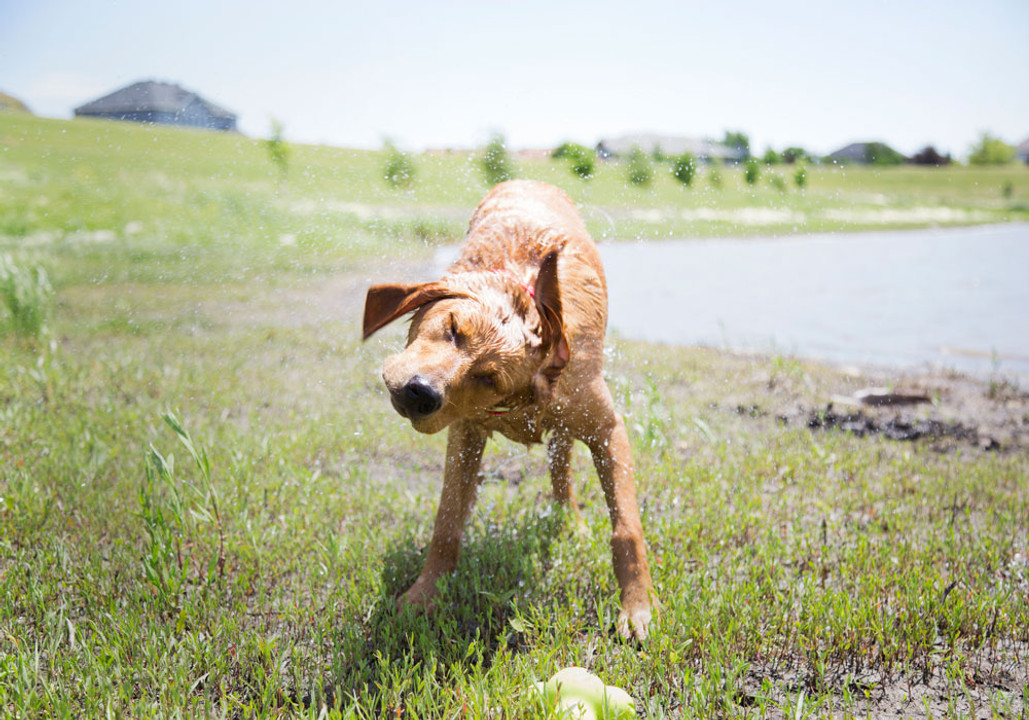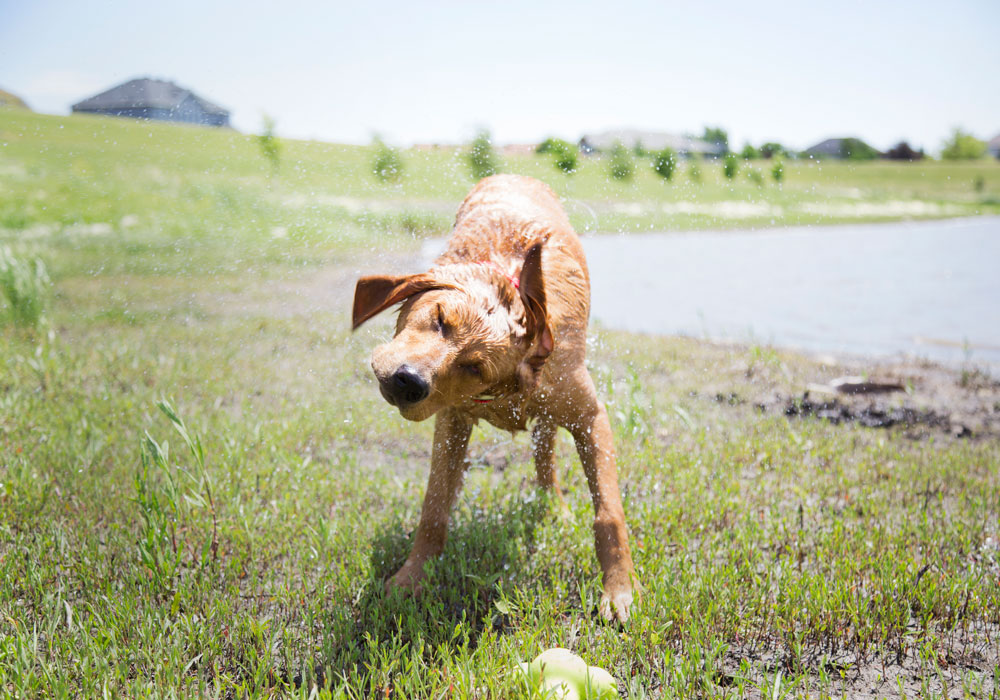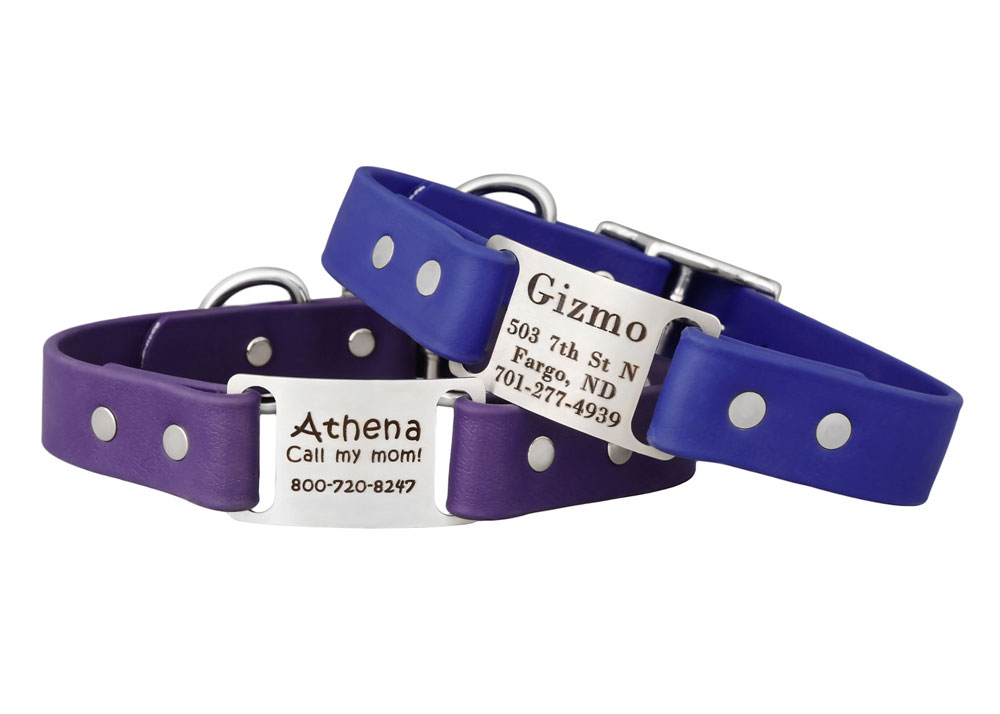Which Rivets are Best for My Dog Collar?

If you’ve ordered one of our collars that require rivets, you may have noticed we offer nickel and stainless steel options.
But what’s the main difference between these two materials? And why does it matter for your dog? Soft grip collars!
Choosing the Right Material for Your Dog’s Collar: Nickel vs. Stainless Steel
When it comes to selecting the best material for your dog's collar, especially those that require rivets, understanding the differences between nickel and stainless steel is crucial. Both materials have their advantages, and the choice depends on your dog's activities and environment.
Nickel Rivets
Nickel rivets are recommended for dogs that frequent freshwater environments such as lakes and rivers. Here's why nickel might be the right choice for your dog's collar:
- Cost-Effective: Nickel is generally less expensive than stainless steel, making it a budget-friendly option.
- Suitable for Freshwater: Freshwater environments are less corrosive than saltwater or chlorinated water. Nickel will remain clean and maintain its appearance longer in these conditions.
- Durability: While nickel is strong, it is not as resistant to wear and tear as stainless steel. However, for dogs that primarily swim in lakes or rivers, nickel is a suitable and economical choice.
Stainless Steel Rivets
Stainless steel rivets are ideal for dogs that enjoy more extreme aquatic adventures, such as swimming in the ocean or participating in dock diving in chlorinated pools. Here are the benefits of stainless steel:
- High Corrosion Resistance: Stainless steel is highly resistant to corrosion, especially from saltwater and chlorine, making it perfect for dogs that frequent the beach or pools.
- Durability: Stainless steel is an alloy that includes chromium, which provides an oxide layer on the material. This layer allows stainless steel to self-heal from minor damages, ensuring long-lasting durability.
- Low Maintenance: Stainless steel requires minimal maintenance, staying clean and rust-free even in harsh environments.
Soft Grip Collars: Comfort and Durability Combined
In addition to choosing the right rivet material, consider investing in soft grip collars for your dog. Soft grip collars offer several benefits that enhance both comfort and durability.
Waterproof and Easy to Clean
Soft grip collars are typically waterproof, making them ideal for active dogs that enjoy swimming or playing in the rain. They are also easy to clean, ensuring that your dog's collar remains fresh and odor-free.
Comfortable for Your Dog
These collars are designed with your dog's comfort in mind. The soft material prevents chafing and irritation, making it comfortable for your dog to wear all day.
Durable and Long-Lasting
Soft grip collars are made from durable materials that can withstand rough play and outdoor adventures. They are resistant to wear and tear, ensuring that they last for a long time.
Shop Waterproof Dog Collars
Explore our collection of waterproof dog collars that combine style, durability, and comfort. Our collars are available in various colors and sizes to suit every dog’s needs. Whether your dog loves to swim, hike, or just enjoy a casual stroll, our waterproof collars are up for the challenge.
Additional Features to Consider
When selecting the perfect collar for your dog, consider these additional features to ensure maximum safety and functionality:
Reflective Strips
Reflective strips are a great addition to any dog collar, especially for those who enjoy early morning or late evening walks. These strips enhance visibility, ensuring that your dog is seen by passing cars and cyclists.
Adjustable Buckles
An adjustable buckle allows you to customize the fit of the collar, ensuring that it is neither too tight nor too loose. This is particularly important for growing puppies or dogs that fluctuate in weight.
Personalized ID Tags
Including a personalized ID tag on your dog's collar is a crucial safety measure. Choose from our range of engraved ID tags that can be customized with your dog's name and your contact information. This ensures that if your dog ever gets lost, they can be quickly reunited with you.
Maintenance Tips for Dog Collars
To ensure the longevity of your dog’s collar, follow these maintenance tips:
Regular Cleaning
Regularly clean your dog’s collar to remove dirt, grime, and odors. For soft grip and waterproof collars, simply wipe them down with a damp cloth. For stainless steel rivets, use a mild soap solution to keep them shiny and rust-free.
Inspect for Wear and Tear
Periodically inspect the collar for signs of wear and tear. Check the rivets, buckle, and overall condition of the material. Replace the collar if you notice any significant damage to ensure your dog's safety.
Proper Storage
When not in use, store the collar in a dry place away from direct sunlight. This prevents the material from degrading and prolongs the collar's lifespan.
Choosing the right collar and rivet material for your dog is essential for their comfort, safety, and durability. Whether you opt for nickel or stainless steel rivets, or a soft grip waterproof collar, ensure it meets your dog’s specific needs and lifestyle. Regular maintenance and thoughtful features like reflective strips and personalized ID tags will keep your dog safe and stylish. Explore our range of dog collars and accessories at dogIDs to find the perfect fit for your furry friend.

If your dog is aquatically active, i.e. he likes to take a dip in the ocean, seaside strolls, or laps in the pool, stainless steel is better because it’s resistant to the damaging properties of salt water and chlorine.
But, if your dog just likes to splash in the lake or walk through the river, nickel products are going to be less expensive yet still keep their sparkling appearance.
Explore Popular Articles
-
Homemade Flea, Tick & Mosquito Repellent for Dogs: A Natural Recipe for Pet Parents
Jun 13, 2025Beyond the Buzz and Itch: Protecting Your Pup from Mosquitoes, Fleas, and Ticks As pet parents, we w
-
Can My Dog Eat This? A List of Human Foods Dogs Can and Can't Eat
Jun 04, 2025As loving dog owners, we consider our furry companions members of the family. They share our homes,
-
How Long Are Dogs Pregnant - Tips for Care & Safety
May 15, 2025Congratulations! If you’re reading this, your furry friend is likely expecting a litter of pup





